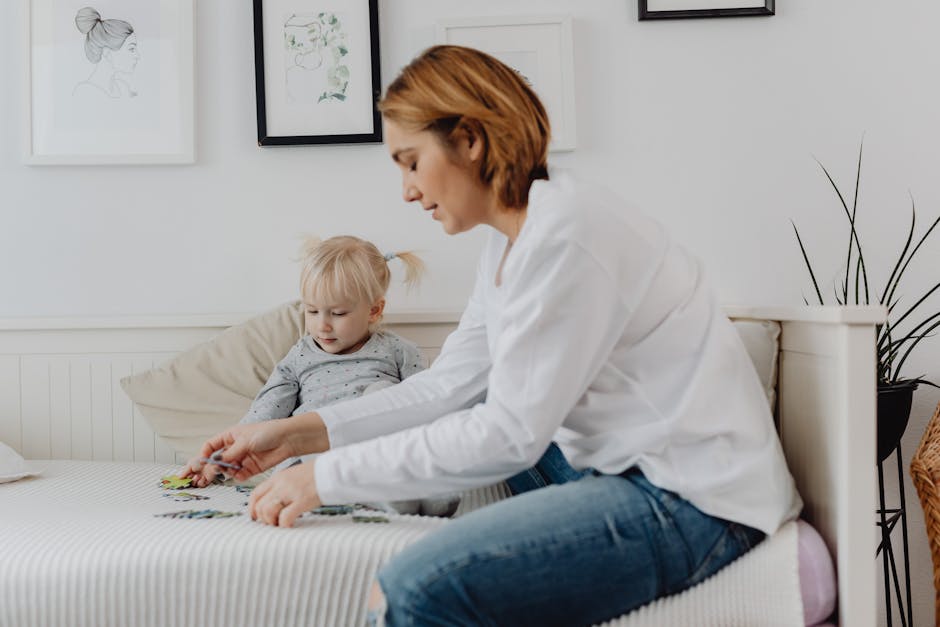Discover how toddler puzzles can be more than just playtime fun—they’re stepping stones in your child’s developmental journey, fostering skills that go far beyond the living room floor.
The Importance of Play in Early Development
In the early years of a child’s life, play is not just a way to pass the time; it’s a crucial part of development. Play, particularly through toddler puzzles, enhances physical coordination, cognitive growth, and emotional resilience. These activities lay down the building blocks for complex future skills.
Experts stress the value of incorporating various forms of play into a toddler’s routine. Puzzles, with their unique blend of physical manipulation and problem-solving, offer a multifaceted approach to learning that toys and digital games cannot replicate.
Introducing Toddler Puzzles into Your Child’s Playtime
Introducing puzzles to toddlers can begin with simple shapes and colors, gradually moving to more complex patterns and pictures as they grow. This encourages curiosity and a willingness to face challenges.
Choosing puzzles that are age-appropriate and align with your child’s interests can significantly enhance their engagement. Whether it’s animals, vehicles, or fairy-tale characters, puzzles that spark joy in your child can make learning through play an eagerly anticipated part of their day.
Cognitive Benefits of Toddler Puzzles
Toddler puzzles are a brain-boosting powerhouse. They enhance cognitive skills such as problem-solving, memory, and the ability to focus. Completing a puzzle requires a child to recognize patterns and categorize pieces, which are fundamental steps in cognitive development.
Furthermore, puzzles provide an excellent opportunity for children to develop spatial awareness, a skill crucial for understanding the world around them. Grasping where pieces fit within a puzzle translates to a better comprehension of how objects relate to each other in space.
The sense of achievement toddlers feel when placing the last piece of the puzzle is invaluable for their self-esteem and motivation. This form of encouragement helps them embrace new challenges with confidence, knowing they’re capable of overcoming obstacles.
Selecting the Right Puzzles for Your Toddler
Selecting the right puzzles for your toddler involves a balance between their current abilities and pushing them slightly beyond their comfort zone to keep them challenged. Start with large, chunky pieces that are easy for little hands to manipulate and gradually introduce smaller, more intricate puzzles to match their developing fine motor skills and cognitive abilities.
Considering the material and durability of puzzles is also key. Wood and thick cardboard are ideal for withstanding the enthusiastic play of toddlers. Additionally, puzzles with vibrant colors and non-toxic finishes can engage a child’s senses and ensure their safety during playtime.
Lastly, look for puzzles that grow with your child. Those with layered complexities or expandable sets can provide continual learning opportunities and prolong the use and enjoyment of each puzzle, making them cherished parts of your child’s early years.
Incorporating toddler puzzles into your child’s daily routine is a simple yet effective way to enrich their early learning experience. With each piece they fit, they’re not just solving a puzzle—they’re building the foundation of their developmental success.


